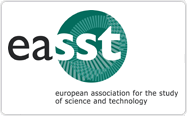The Power of Place
How Local Engagement with Geological Disposal of Radioactive Waste Re-situated Technoscience and Re-assembled the Public
DOI:
https://doi.org/10.23987/sts.69782Abstract
Investigating the role of geographical location in public engagement with science we examine the West Cumbria Managing Radioactive Waste Safely (MRWS) Partnership’s undertaking of one of the most extensive local public engagements with environmental risk science in the UK. The case study highlights the transformative impacts of this three-year long local engagement on both science and the public. Differently from other invited public engagements, organised as experiments controlled by scientists in spaces set aside from the everyday, the Partnership’s lay members led a process unfolding in the place that was potentially at risk. The Partnership had the authority to demand that scientists addressed issues of local interest. We frame the analysis with the notions ‘re-situating technoscience' and ‘re-assembling the public' to illuminate how scientific knowledge claims were modified and a new local public emerged, at the intersection of public engagement with science and public participation in environmental risk governance.





